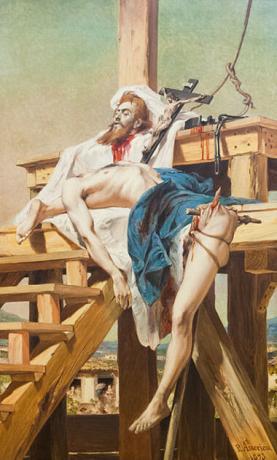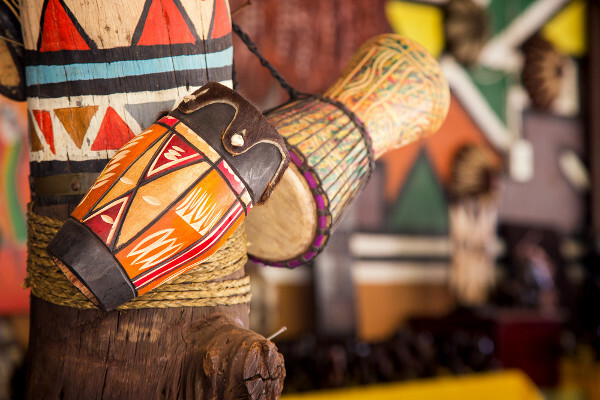Since 1965, on the 21st of April, the Tiradentes Day, in Brazil. In addition to the tribute to this historical character, they also remember that they configured the Mining Inconfidence. In this text, we will try to explain the reasons why Tiradentes came to be considered a national hero and Patron of the Brazilian Nation.
Read too: Origin of Corpus Christi Holiday
Tiradentes Biography
It is known that “Tiradentes” was the nickname of Joaquim José da Silva Xavier, an ensign (military post from the colonial era) who also exercised the profession of dentist. Tiradentes actively participated in one of the main movements to contest the power that the Portuguese Crown exercised over Colonial Brazil: the Mining Inconfidence. We know that this movement was articulated between the years 1788 and 1789 and was permeated by ideas from the Enlightenment, which spread across Europe in the second half of the 18th century.

The inconfidentes of Minas Gerais generally belonged, with the exception of a few, to the cultural and social elite of that region (as was the case of the poet Tomás Antônio Gonzaga), or occupied military posts or exercised liberal professions, as was the case of the aforementioned Tiradentes. What gave the group unity were ideas such as freedom and equality (ideas that also fostered French Revolution, in 1789), in addition to the desire for emancipation and independence from the Portuguese Crown, at the time governed by the Queen D. Maria, "the crazy".
The insurgency plans against the local government in Minas, represented by the Viscount of Barbacena, were articulated in 1788 and were triggered by the policy of charging taxes on gold production and on the income that each person who made up the population of Minas Gerais earned. This last tax was known under the name of “spills”. Despite having a well-developed organization, the inconfidentes ended up exposed by Silverio dos Reis, a tax debtor who, with the denunciation, believed he could pay off his debts to the crown.
All inconfidentes were arrested. Tiradentes was caught in Rio de Janeiro. The process established against them and the subsequent trials and sentences did not end until 1792, on the 18th of April. The main leaders received the penalty of banishment, that is, they were expelled from the country. Tiradentes, on the contrary, was hanged on April 21st to the sound of speeches praising the Queen of Portugal. His body was dismembered and his head displayed in the main square of the city of Ouro Preto. To learn more about Tiradentes' life, just access our article: Tiradentes.
Read too: The symbolic construction of the Republic
Why Tiradentes came to be considered a national hero?
Evidently, the day of Tiradentes' death was long understood as the day a rebel was killed, as a typical example of absolutist retaliation. However, after the Independence of Brazil and, especially, after the Proclamation of the Republic (a time when Brazil, already detached from Portugal, sought to build its national identity), the image of Tiradentes began to be recovered and praised as one of the nation's heroes or as one who first fought (to the death) for freedom.
An example of this image was the installation, in 1867, of the first monument to Tiradentes in the city of Ouro Preto. Another example, the most notorious, was the production, by the painter Pedro Américo, of the painting “Tiradentes Quartered” in 1893, a time when the newly established Republic sought the martyrs and patrons of the “nation Brazilian". Pedro Américo's Tiradentes translates the idealized image of martyrdom, which approximates the martyrdom of Christ.
This republican vision of Tiradentes remained (and, in a way, still remains) in the popular imagination of Brazilians. In 1965, during the first phase of the military regime in Brazil, the marshal CastleWhite, then president of the Republic, contributed to the reinforcement of Tiradentes' image, sanctioning the Law No. 4. 897, of December 9, which instituted April 21 as a national holiday and Tiradentes as, officially, the Patron of the Brazilian Nation.
By Me. Cláudio Fernandes
Source: Brazil School - https://brasilescola.uol.com.br/datas-comemorativas/tiradentes.htm


